If you ask Takis Sahpekidis where this story begins, he’ll say it was on a nice sunny day in Västervik, Sweden, when he joined two elderly ladies for coffee, and listened to them react to a white line in the sky: “That’s from an airplane. Have you ever been on one?” “No, have you?” “No, that’s my biggest dream.”
Like most good stories though, this one can be traced back in time to a seemingly completely random and – to an outsider – unremarkable event. It begins in 1974, with the unexpectedly tear-filled goodbye between 24-year-old Takis and his mother as he left his home in Thessaloniki for a visit to his cousins in Sweden. He was to be gone only a few weeks, but his mother predicted otherwise: “You say that,” she said, “but I know…”
She was right; he never moved back home. Instead, he spent most of his life working as an activity coordinator at Västervik’s retirement homes. Many years later, when the frailty of old age became a hindrance to his mother living alone, a butterfly would flap its wings again, as Takis made the bold decision to put her on an airplane and bring her north as well.
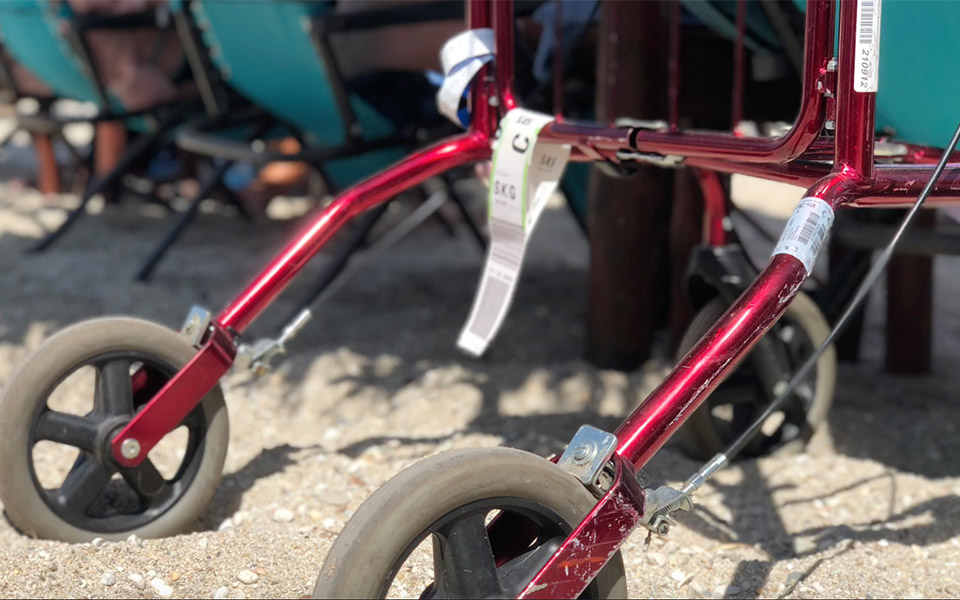
© Municipality of Västervik
Takis likes to emphasize two things he learned from his work. One: you don’t stop dreaming just because you grow older, and two: you should live life, throughout life. Bringing his mother to a new country, he saw the rush of adventure put sparkle in her eyes again.
Forward to that sunny day and the contrails in the sky. When Takis heard about the unfulfilled dream of going on a plane, he knew it wasn’t impossible, and he thought: “I can give them one last vacation.”
In 2011, he flew to Thessaloniki with 35 retirement home-residents and personnel, and embarked on a new adventure – one that would turn out to be as much a revelation for the elders, as for himself, and eventually for a public TV audience.
Unexpectedly, what began as a slightly crazy idea to fulfil a group of people’s dreams of one last vacation, also turned out to be beneficial to the health of the travelers, who suddenly appeared to improve – both physically and psychologically. While an interesting occurrence from a medical research standpoint, to Takis and his colleagues then, it meant only one thing: they would do it again.
Most years since, elderly residents of the seaside town have awoken before sunrise, packed themselves onto a bus, then a plane, and then another bus, to reach the small family-owned Rigakis Hotel in Pefkochori, on the Kassandra peninsula in Halkidiki, just an hour and a half from where Takis grew up.
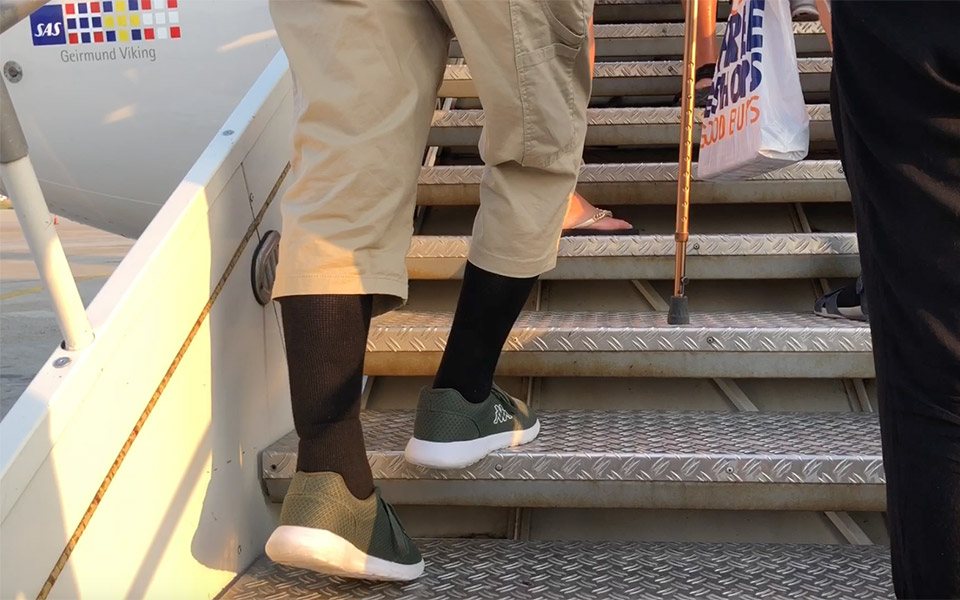
© Municipality of Västervik
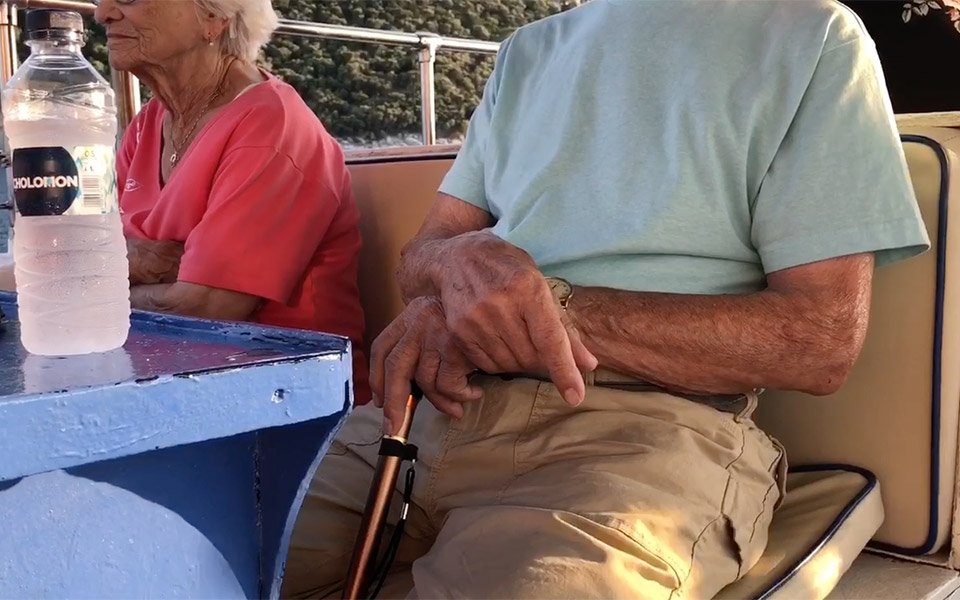
© Municipality of Västervik
In 2014, eighteen elders and their carers were joined by a film crew, taking footage for what became a renowned Swedish documentary titled “The Trip to Greece,” by Eva Löfroth and Ulric Bellman. Prompting both laughter and a few tears, it shows the pensioners go from anxious to thrilled, as they swim in the sea, go on a boat trip, dance to Greek music, and form family-like bonds with each other.
“I feel stronger, like I’m young again,” says Barbro, who initially said no to the trip, thinking she might not live long enough to even sign up.
There are many such testimonies. After the trip, even those with severe dementia remember that they’ve been somewhere – that they’ve done something fun, and it makes them notably better.
The documentary led to Takis winning a Swedish Hero award, which was presented to him at a prestigious televised gala hosted by newspaper Aftonbladet.
Takis’ memories from the trips are inspiring, touching, and countless. One example is the story of Sven, who spent a lifetime being afraid of water after a near-drowning incident as a child, but overcame his fear while watching the others splash around in the shallows: “On the last evening of that trip, Sven was sitting alone in a chair, with his eyes fixed on the horizon. When I walked over to ask how he was, he said: ‘I’m fine, but I wish we didn’t have to leave. How wonderful it would be to go swimming again.’ So, we did. I helped him down to the beach and we had a night dip, and soon the others joined us…”
While Swedes are generally known to travel at least once a year, plenty of the retirement home residents that Takis has traveled with had never left the country before. “Many of them need a lot of convincing,” he says, “but once they’ve gone on the trip once, they sign up again and again. We try to take different people every year though, since we can’t take everyone.”
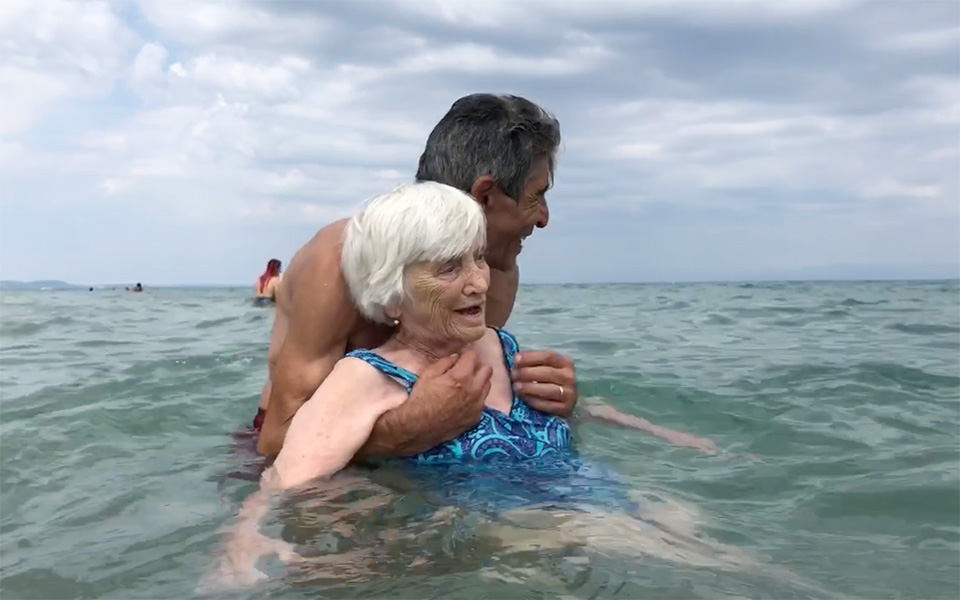
© Municipality of Västervik
Then came Covid-19. It’s been two years since Takis last organized a trip. He had already retired on paper then, and it may appear as though a lot has changed, with a violent pandemic making traveling impossible – especially for elders, for over a year, and Swedish retirement homes getting hit hard by it in the first wave. Yet in the aftermath of the coronavirus, travel is expected to be safer than before, with airlines and hotels adjusting to new health protocols.
Also, happily, other Swedish municipalities have started contacting Takis, interested in organizing similar trips and hungry for his advice.
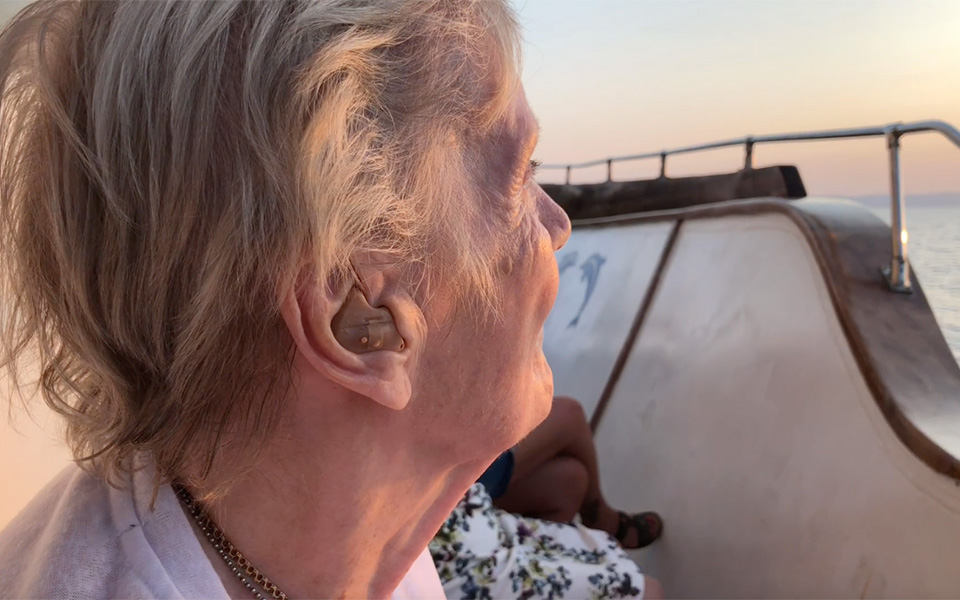
© Municipality of Västervik
In 2019, the city of Halmstad, on the opposite coast of Sweden, issued almost half a million euros (five million Swedish crowns) to be invested in the quality of life for the city’s elders, and seven ladies in their 80s and 90s from Harplinge retirement home traveled with eight personnel to Rhodes, where they spent a week swimming in the sea, trying local foods, and sunning themselves.
“I can’t describe it in words. I’m moved every time I think about how happy they were,” Heidi Nilsson, concept manager of the retirement home and the trip initiator, wrote to me in an email a few weeks after their return.
Having dreamt about taking the elders on a trip for years, and having spoken to Takis, she was happy to report the same result as her colleagues from Västervik; the trip was rehabilitating.

© Municipality of Halmstad

© Municipality of Halmstad

© Municipality of Halmstad
“Every day the ladies got more energetic and limber, and the difference is still noticeable after getting back – they have new spark,” she explained. “On the trip, one of them dove for the first time in twenty years, and now she does it at the indoor pool here. Last week she jumped from the trampoline!”
“I was so happy to hear that Harplinge’s vacation was a success,” Takis told me later. “It’s an invaluable experience for everyone, which means it’s worth the cost for the cities. Hopefully more communities will follow.”
Heidi Nilsson agrees, and was excited for the prospect of another trip in 2020. Then, of course, the pandemic put everything on hold.
So what is it about spending time in Greece that makes old people feel younger?
On the one hand, perhaps traveling anywhere would be beneficial, but there are definite advantages to Greece. The climate, of course, is a big draw, with warm temperatures, known to alleviate pain in arthritis patients, and long shoulder seasons with relatively dependable weather. At the end of summer and in early fall, the sea is warm and perfect for water gymnastics.
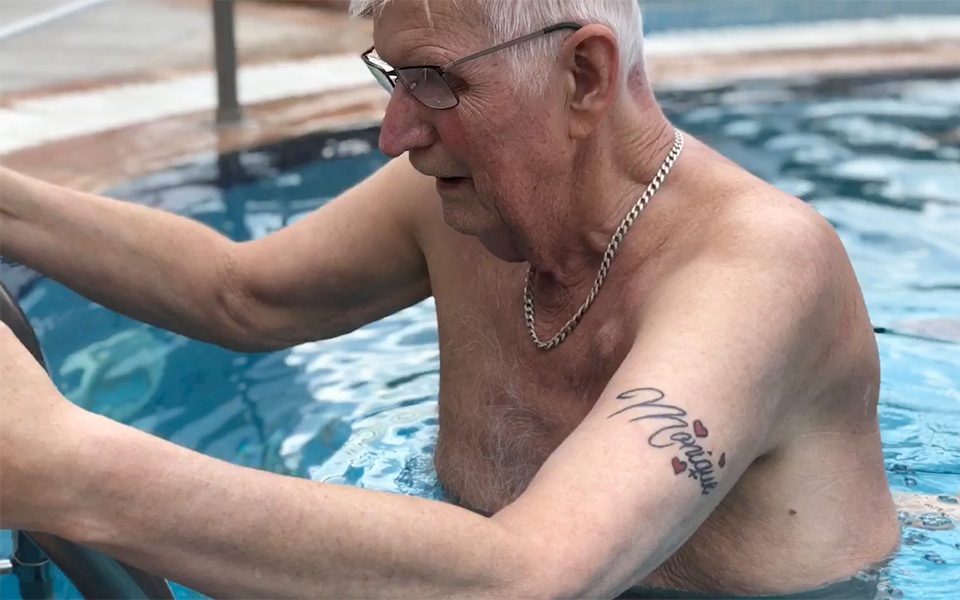
© Municipality of Västervik
There are other things too. Ikaria, known as the island of longevity and one of the Blue Zones in Dan Buettner’s book about the lifestyles of centenarians, is commonly referred to as proof of the health benefits that come with the Greek cuisine and climate. Meanwhile, senior residential homes targeting foreign pensioners also list activities like traditional dance lessons and proximity to the sea as recreational.
As an unscientific observation, one might add that Greek elders do give the impression of being unusually energetic, often seen enjoying themselves at the kafeneia (traditional cafés) and running chores they look much too old for.
In fact, while taking otherwise homebound elders on a last beach holiday might be an unusual idea, several travel agents organize tours designed for able seniors, and Greece has long been a popular choice among foreign retirees, who find that the lifestyle on the islands and in the villages brings happiness and reduces stress.
In a successful campaign to attract pensioners, especially from Scandinavia, Greece has introduced a 7% flat tax rate for ten years on foreign pensions for those choosing to become permanent residents.
In some places, locals, hoping to draw groups of elders and disabled people, have taken it upon themselves to make their attractions accessible.
“There is profit to be made from becoming an accessible destination,” Andreas Skoupouras, Deputy Mayor for Welfare and Social Policy on Corfu told me once, when I was researching an article about visiting Greece in a wheelchair. On his island, more than twenty beaches are equipped with floating wheelchairs, ramps or Seatrac systems, and the Old Town, a UNESCO heritage site, features useful maps of disabled-friendly routes.
Most tourist destinations, including Athens, Crete, and Rhodes are scattered with large resorts equipped to cater those with mobility issues.
Harplinge retirement home chose one of them, the Pegasos Deluxe Beach Hotel on Rhodes, which features disabled-friendly rooms and ramps to all facilities, and all the way into the sea.
Västervik’s retirement homes stayed faithful to the Rigakis Hotel in Halkidiki, where the owners have been happy to welcome them every year. While not wheelchair-accessible, Takis explains that if you travel with enough resources and manpower, a small and calm hotel is ideal. They love the beaches of Halkidiki, and the occasional dolphin sightings.
If you ask Takis Sahpekidis where this story ends, he won’t give you an answer. Many of the people who’ve traveled with him to Greece are now gone, but the personnel and relatives who accompanied them are reassured by the memories of them playing with stray kittens, closing their eyes towards the sun, and laughing in the sea.
“Some moments are so beautiful it’s hard, even for me, not to cry,” Takis says, before telling me one last story about Håkan, a cancer-sick man who everyone thought wouldn’t make it through the week. On the first day, Håkan lay motionless on his sunbed. On the last day, he was dancing, happy, and suggesting a day trip to Athens. He lived for another three weeks after they got home. His family credited that last rush of energy to his last trip to Greece.












